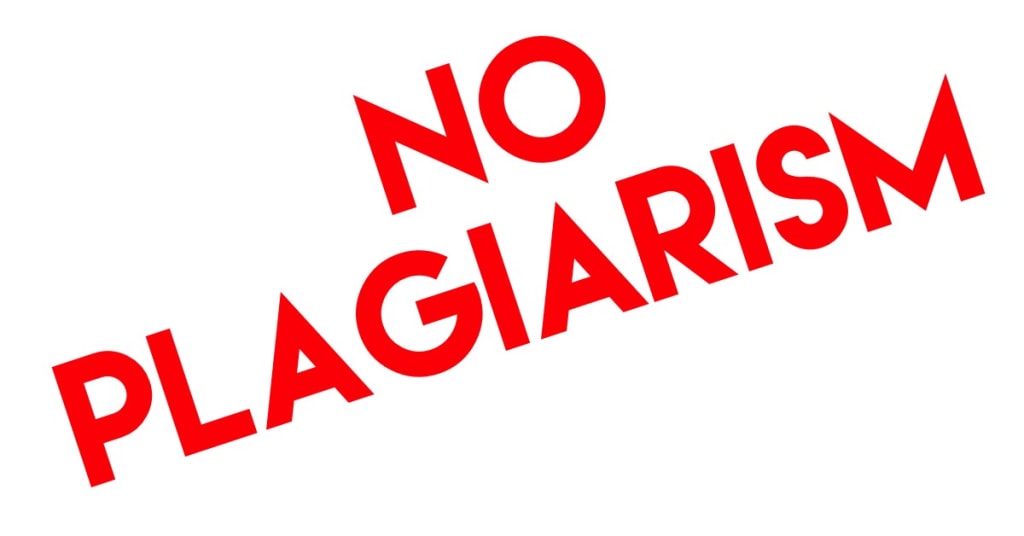Understanding plagiarism: unoriginal sins in the scholarly community and beyond
Unraveling the Complexity of Plagiarism: Forms, Consequences, and Prevention Strategies

Plagiarism, often referred to as "unique sin," is a serious moral offense that is widespread in academia and other fields. In a world filled with easily accessible information and content, the temptation to borrow, copy, or imitate the work of others without proper attribution has become a major concern. This article analyzes the complexities of plagiarism, its various forms, consequences and strategies to prevent it.
Definition of Plagiarism
Plagiarism is the act of presenting someone else's thoughts, words, or creations as your own without giving proper credit. This unethical practice can take many forms, including copying text, paraphrasing without proper citation, copying thoughts, or even using someone's artwork, music, or research results without acknowledgment. Plagiarism undermines the essence of unique thinking and the principles of academic integrity.
Form of Plagiarism
• Direct copying: The most flagrant form of plagiarism is copying someone else's work verbatim and passing it off as your own. This can be from printed materials, online sources, or even an assignment from a colleague.
• Paraphrasing without attribution: This form of plagiarism involves paraphrasing someone else's work without properly citing the source. Although the words can be changed, the thoughts are borrowed.
• Dries redaction: Dries redaction is a subtle form of plagiarism where a person takes parts of the source and refreshes them slightly while keeping the unique structure. You can create an illusion of originality while drawing heavily on the source material.
• Unauthorized Thoughts: Using someone else's thoughts, concepts, or theories without proper acknowledgment is also a form of plagiarism. Thoughts are also intellectual property and not crediting them constitutes unethical behavior.
Consequences of plagiarism
The consequences of plagiarism can be serious, both academically and professionally:
• Academic Repercussions: In educational settings, plagiarism can result in failing grades, failure in courses, or even expulsion. It destroys trust between academics and students, tarnishing the academic reputation of both parties.
• Damaged professional reputation: In the professional world, theft can cause reputational damage that is difficult to repair. Colleagues, employers, and clients value originality and honesty, and discovering plagiarism can lead to lost opportunity and trust.
• Legal Consequences: Plagiarism can sometimes lead to legal issues, especially when it comes to copyrighted material. Copyright holders can take legal action against those who reproduce their work without permission or proper attribution.
• Preventing individual growth: Plagiarism deprives people of opportunities to develop critical thinking, research, and communication skills. Taking shortcuts hinders genuine learning and individual growth.
Prevention of Plagiarism
Theft prevention requires a combination of awareness, education and proactive measures:
• Build a culture of integrity: Organizations must foster a culture that values integrity and originality. Educators can explain the importance of proper citations and lead by example.
• Teach proper citation: Students need to be educated about different citation styles and how to give credit to original sources. They also need to learn how to effectively integrate fonts into their work.
• Use plagiarism detection tools: Educational institutions and content creators can use plagiarism detection tools to identify potential instances of non-unique content. These tools compare submitted jobs against huge databases of similar flags.
• Encourage critical thinking: Tasks that encourage critical thinking and analysis discourage rote copying. When students are encouraged to develop their own perspectives, they are less likely to resort to plagiarism.
• Provide Help: Some instances of plagiarism may be due to inadequate writing or research skills. Providing support through writing centers, workshops, and tutorials can help students improve their skills.
Plagiarism remains a major ethical challenge in the scholarly community and various industries. It robs people of opportunities to learn, grow, and contribute authentically. By understanding its various forms, consequences, and countermeasures, we can collectively work to build a culture of originality, integrity, and respect for property.





Comments
There are no comments for this story
Be the first to respond and start the conversation.